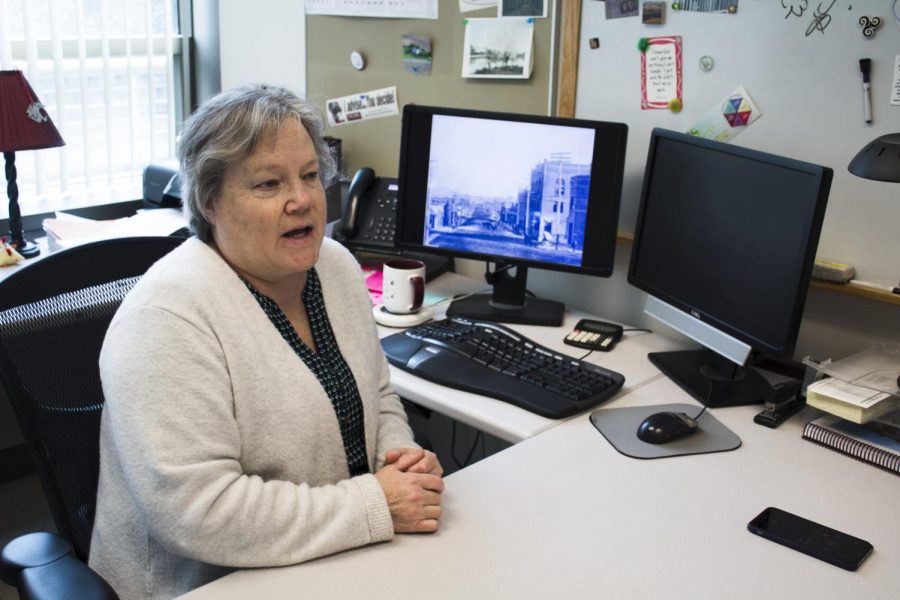Panel will teach students to balance responsibilities
Jobs, academics, social interactions compete for time; overextending can lead to falling behind in classes
MILA WIDMAYER | THE DAILY EVERGREEN
Ruth Ryan, associate director of the Advising and Career Development Center, discusses the importance of time management for students Wednesday morning in the Lighty Student Services Building. “Figuring out what matters to you is important,” Ryan says.
April 3, 2019
Managing the daily stress of college life is a skill rarely mastered. Juggling relationships and work is a feat alone — adding grades into the mix often leads students down the road of many sleepless nights.
“Students and professionals alike, the best way to balance life out is to learn time management skills,” said Ruth Ryan, associate director at the Academic Success and Career Center. “We have online or in-person workshops students can attend, worksheets to fill out and will do one-on-one visits … to help them manage time rather than time manage them.”
GPSA will host a panel to discuss how to balance work, life and family effectively from 3:30-5 p.m. this Friday in the CUB, Room L60.
Panelists at the event are planning to share advice on how to harmonize all aspects of the busy ramblings of college students while finding time to enjoy college life to the fullest. Attendees can ask questions throughout the symposium to clarify particular points.
In balancing studies with an active social life, many students find it hard to find friend groups upon enrollment. Focusing too much on good grades could leave students feeling isolated from their peers.
Ryan said she encourages students to get involved if they are feeling isolated on campus. Taking part in a club, activity or intramural sporting event is a great way to make new connections and bond with people who share the same interests.
However, Ryan said some students will stack themselves with too many activities, which is also an issue.
“It’s all about figuring out a balance between having friends and not overdoing it,” Ryan said. “Figuring out what matters to you is important, it can’t all just be social.”
If joining a weekly club or scheduled activity sounds like too much of a commitment, there are one-time activities hosted by the Student Entertainment Board, like concerts, movies shown at the CUB and other social events.
Comfort and familiarity can help with the homesickness that comes along with the transition to Pullman’s campus, so keeping up with family and friends from home is a sound idea. Ryan said the Center highly encourages students to stay in touch with their families.
“You can’t always call Mom or Dad when they’re at work,” Ryan said, “but figuring out what you can do or setting aside a dedicated time each week to have a long conversation works, even if it’s just catching up and gossiping about the neighbors.”
If you are a degree-seeking student, attending and passing classes is the main objective of your time spent here. Work-study jobs are offered to students seeking a source of income, but rarely hand out over 20 hours per week.
Ryan said she had to work four jobs during her time in college, and it ended up putting off getting her degree for a decade. While being able to afford basic necessities is important, overextending your time with different jobs can lead to a slippery slope of falling behind in classes, raising stress levels to unbelievable heights and unintentionally letting relationships wither away.
Students who struggle to balance the many facets of their life should be aware that there are resources to help them. Balancing things is easy in theory, but doesn’t come naturally to everyone.
The panel on Friday is just one way of many students can learn how to create more order between the competing pulls of school, family, friends and life.










